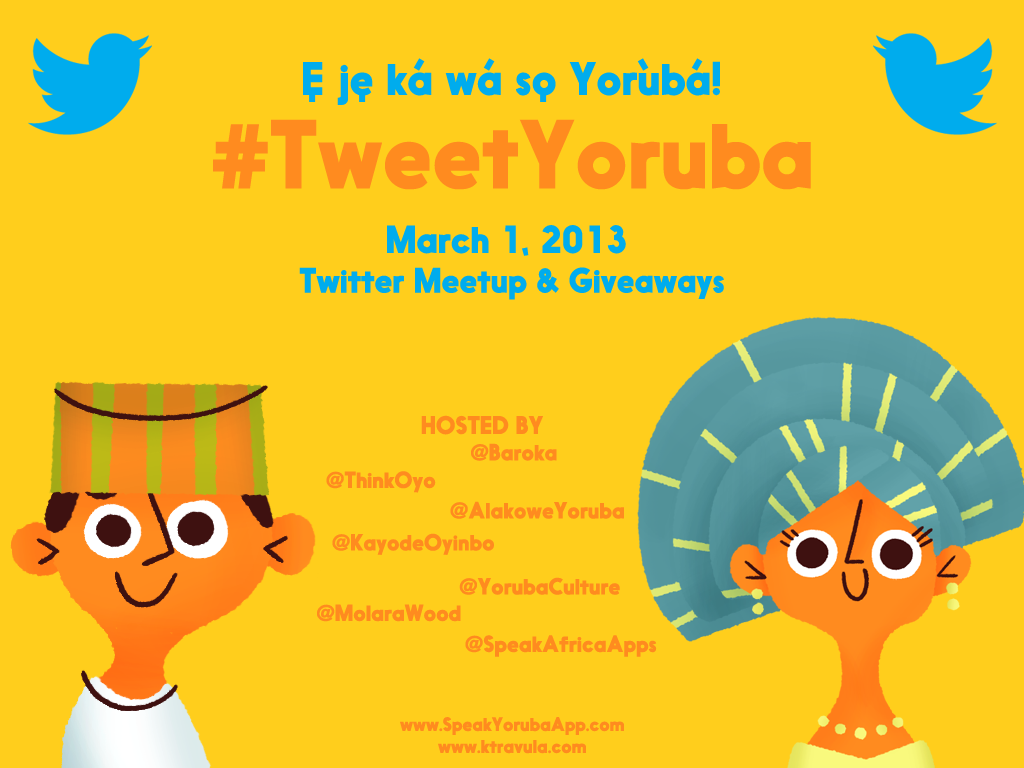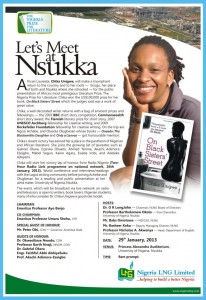On March 1, 2013, twitter users who speak Yoruba will tweet all day in their mother tongue.
This practice began last year as a means to pressure Twitter to include Yoruba in the list of languages into which the platform is being translated. There was a partial success in form of a response by a twitter translation desk official who assured that while the message has been heard, it would take a little while more to include the language, for logistic reasons.

We have had a second contact with Twitter official @lenazun, this time to help with the question about what accepted dialect of Yoruba is generally used in official Yoruba writings and translation. (The answer is the North-West, Oyo Dialect of Yoruba). Besides that, nothing else.
The Tweet Yoruba Day on March 1, 2013* is to continue the annual tradition, but with less emphasis on pressuring Twitter but on celebrating the beauty and importance of the mother tongue usage in the age of modernity. It might never happen anytime soon that the only means of communication online would be any of these local languages with a limited number of speakers (Yoruba has over 30 million), but as long as these means of communication exist, there would always be new ways of transmitting culture and a distinct worldview.
The hashtags to use, like last year, would be #tweetYoruba and #twitterYoruba. For those still interested in reminding twitter of our intention to have the platform translated into Yoruba, copy your tweets to @twitter and @translator.
________
*February 21 is The International Mother Tongue Day
________
Here is the official poster. Feel free to share on your social networks:
__________

Tweeters with the most creative tweets during the event will receive “I Can Speak Yoruba” T-shirts and tote bags courtesy of @SpeakAfricaApps, a supporter of the event, and Recharge Cards courtesy of Think Oyo (@ThinkOyo), another supporter. The project is brought to you with help from Molara Wood, writer (@MolaraWood), Alakowe Yoruba (@AlakoweYoruba), The Yoruba Cultural Insittute (@yorubaculture), and Kevin “Kayode” Barry (@KayodeOyinbo).
_________


